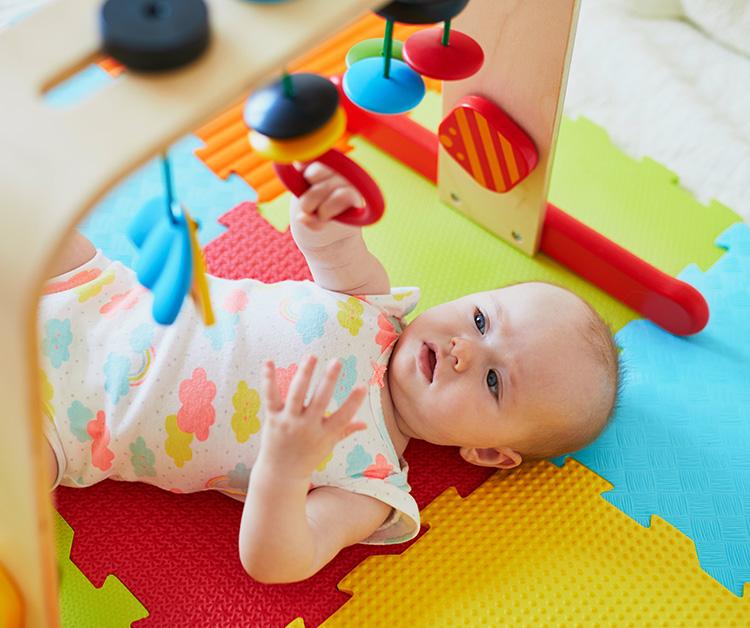Due to maintenance, rewards points for receipt uploads will be delayed. Thank you for your patience!

How does floor time support my baby’s development? Dr. Mona Amin shares the benefits of floor time for babies – such as supporting cognitive and movement development.
What is floor time and how does it support my baby’s development. Pediatrician and Enfamil infant development expert, Dr. Mona Amin, explains how floor time is important for baby’s development – particularly cognitive and movement development – and what parents can do to encourage play during floor time.
What is floor time and why is it important for babies? Floor time is an opportunity for our infants to play on the floor that offers several benefits to both you and baby. Parents often feel the need for fancy toys and an ample amount of time to engage their baby and end up focusing more on quantity rather than quality. In reality, quality time is more important than the quantity of time and, similarly, a few quality toys can go a long way.
You can begin floor time around 2-3 months old when baby is awake and more engaged in play time.
Independent free-play on the floor looks different in infants than in older children. But the concept remains the same – you’re not in their face all the time and allowing them to be independent with play items near them. You can lay your infant on their back or tummy on a mat, while staying nearby in case they cry or look to you for comfort. Tip: Switch up baby’s positions to trigger different senses and muscle groups.
A play gym is a great place to put them in as there are interesting toys to look at and play with. Independent floor time allows your baby to play while you are still nearby for support. This can sometimes give you time to respond to some emails, prepare a meal, or take a moment for yourself before you go back to 1:1 play.
Independent floor time also allows baby to have time to get bored, which has its own benefits.
Floor play can also be where you lay on the ground and engage them in activities where you are at their level or where you are nearby keeping an eye on them, but not as physically involved. I believe this mix is important to raise an independent child who feels loved and engaged.
And of course, remember to enjoy play time with baby! When you’re happy and excited, they’re happy and excited.
Want to know how to help support baby’s development? Learn why Enfamil NeuroPro fuels baby’s mind and body.
All information on Enfamil, including but not limited to information about health, medical conditions, and nutrition, is intended for your general knowledge and is not a substitute for a healthcare professional's medical identification, advice, or management for specific medical conditions. You should seek medical care and consult your doctor or pediatrician for any specific health or nutrition issues. Never disregard professional medical advice or delay seeking medical treatment, care, or help because of information you have read on Enfamil.